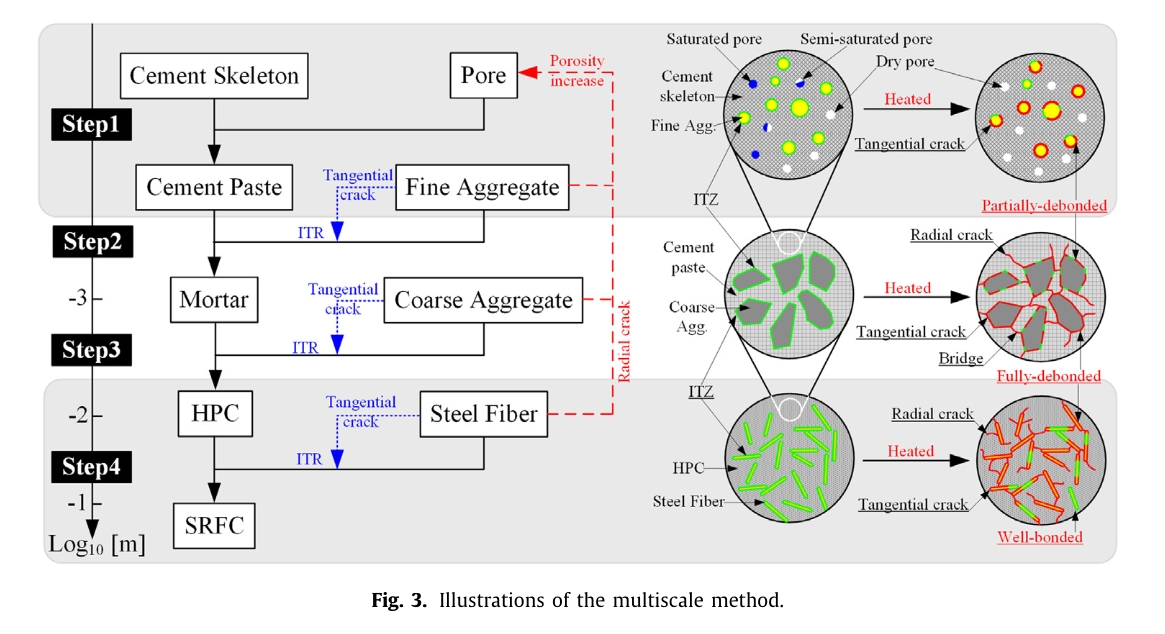A thermal cracking pattern-based multiscale homogenization method for effective thermal conductivity of steel fiber reinforced concrete after high temperature
The mesoscopic thermal cracking behavior in steel fiber reinforced concrete (SFRC) caused by hightemperature load can result in a substantial reduction of effective thermal conductivity (ETC) at macroscale level. In this study, a multiscale homogenization method for identifying the ETC of thermally damaged SFRC is proposed. This new method is characterized by the consideration of crack thermal resistance effect rather than using temperature-dependent thermal conductivities of components in cementitious composite. A series of experiments on thermal conductivity of mortar, plain concrete, and SFRC heated at various temperatures is performed. The method predictions satisfy the experimental results extremely well when the interfacial thermal resistance (ITR) coefficient is assumed to increase linearly with temperature. The numerical and experimental results show that the ITR effect makes approximately 50%, 36%, and 7%–12% contributions to the overall thermal conductivity reductions in the mortar, plain concrete, and SFRC heated up to 600 ◦C, respectively. Moreover, it is found that the trend and magnitude of ETC reduction caused by heating increase with the increase in particle content and particle-matrix thermal conductivity ratio due to the synergistic effect of heat bridge and ITR.


